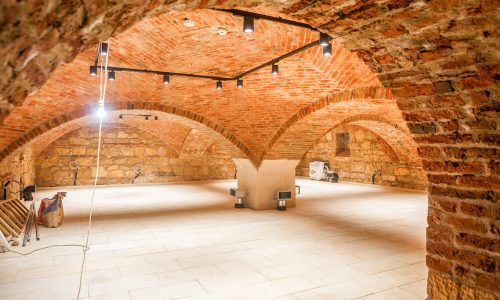The Delta variant of COVID-19 is much more contagious and has even been known to infect people who have completed a full vaccination course, although, for unvaccinated people symptoms can be significantly worse and lead to hospitalisation or intensive care.
Doctor Valeriu Gheorghiță explains, that the “Delta” variant, which was first identified in India, is continuing to impact countries across Europe and urges people who have not yet received a vaccine, to get vaccinated as soon as possible, in order to limit the amount of people who require hospitalsation.
Vaccines Make a Difference
“From the international scientific data we have so far, fully vaccinated patients who are tested positive for Covid-19 have a much shorter course of the disease compared to unvaccinated people, meaning they get rid of the virus faster – the virus dies faster, it is eliminated faster, the contagion window is shorter, estimated at around 5-6 days, compared to about 10-14 days in unvaccinated people. Certainly, the methodology will be re-evaluated here in the next period, precisely because, in the case of fully vaccinated people, a control PCR test should be done earlier than day 8, day 10, as is currently the case, just to avoid staying in isolation for 14 days, as long as the probability of getting rid of the virus faster is much higher“, said Valeriu Gheorghiță.
In situations where a vaccinated person was infected with the “Delta” variant of the virus, identified scientifically as B.1.617.2, they often exhibited mild or moderate forms of the illness and did not require hospitalisation or intensive care.
Also, it was discovered that the virus “dies” faster and that the period where the risk of transmission is high, was shorter. This is the reason that Valeriu Gheorghiță said that methodology in the case of vaccinated people who become affect, may be revised and self-isolation for those people may be shortened.
The doctor informed that what is currently known, is both fully vaccinated and unvaccinated people, have a seemingly similar viral load at the time of diagnosis, but that the percentage of viable virus, which is what has the capacity to infect, is about 68% in vaccinated people.
Practically, this, corroborated with the shorter period of contagion, with the fact that a vaccinated person loses the virus faster also shows a lower potential for transmission to contacts. So, from this point of view, taking into account the fact that the probability of making a severe form, the probability of reaching the hospital we see that it is at least 10-15 times lower than in the case of those who are not vaccinated or who have no kind of immunity, all these show the important benefits of vaccination”, Gheorghiță explained.
Much Shorter Incubation Period
A person with the “Delta” variant tests positive in 4 days, compared to around 1 week, as was the case with other variants. The Delta variant has a much shorter incubation period and that's the reason that it spreads much easier.
He explained that announcing those who have come into contact with the virus as soon as possible, is crucially important with this variant, as it has the ability to double the amount of cases in a much shorter time.
Fourth Wave
The fourth wave of the pandemic in Romania has progressed faster than initial estimates. Gheorghiță warned that revised predictions revealed that Romania can expect to see over 2,000 new cases daily and this is primarily causes by lack of vaccination across Romania as well as a combination of increased mobility and interaction of people and low compliance with the prevention measures.



